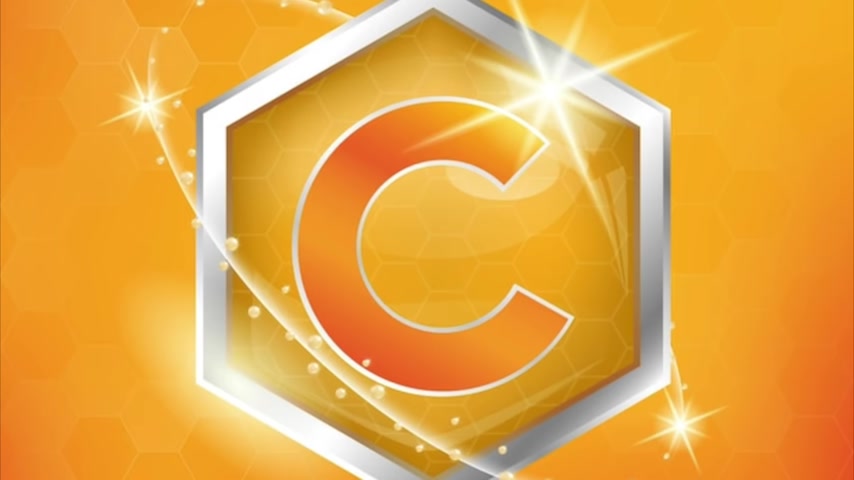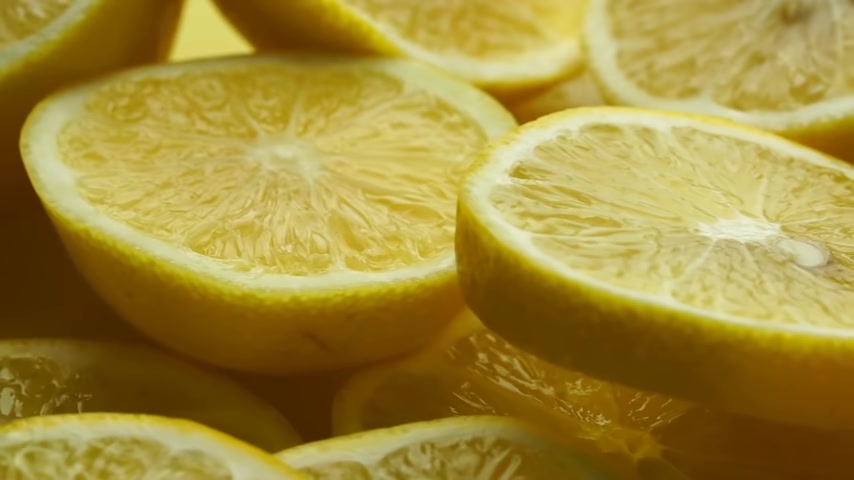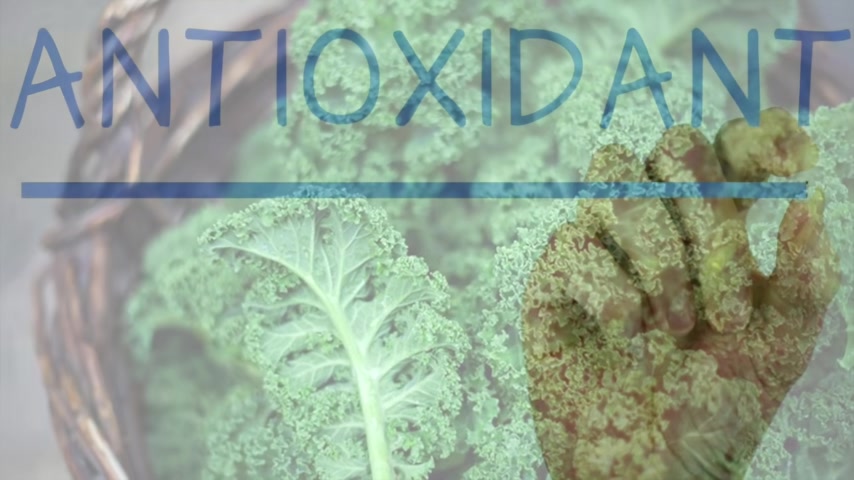
https://www.youtube.com/watch?v=l8FkfVsz76E
The 4 Things about VITAMIN C That Are Quite SHOCKING!

Wanna talk about some interesting things related to vitamin c .
So the first question is , is ascorbic acid vitamin c ?
Well , according to the dictionary , it is , but there's an interesting change in the dictionary .
Apparently , in the older dictionaries , which I have quite a few different dictionaries , the definition of vitamin c is not ascorbic acid .
That was actually updated later in the dictionaries .
So if you're reading a recent edition of a dictionary , you're gonna find that a vitamin c is ascorbic acid .
But is it really ?
Does the type of , ascorbic acid sold in vitamins nowadays , is that very similar to the vitamin c that is in nature ?
Well , what you need to know is this , 80% of all the ascorbic acids sold in the world comes from China , and the rest of it is manufactured by mainly 2 other chemical companies , and they make it from glucose , from sugar .

And , other chemicals , sometimes they'll use sulfuric acid .
And the sugar usually comes from corn .
So is it possible that this manufactured chemical can be the same as the vitamin c you would get in nature ?
In my opinion , it is not the same .
It's actually very different .
Now , would I personally ever take a synthetic , ascorbic acid in certain dosage ?
Well , maybe for a detox cleanse , but definitely not as a routine thing .
But this video is about increasing your awareness on the type of vitamin c that you're probably might be taking , and just so you have all the data .
Because when someone tells you that there's no difference between synthetic ascorbic acid and vitamin C , they're both the same thing .
Well , actually , that's not a 100% true .
I'm gonna put this research right down below .
You can check it out .

Some real interesting data on vitamin c as far as the research , and the conclusion of a lot of the randomized controlled trials is that there is little to no benefit from taking high doses of ascorbic acid .
There's some mixed results with , lessening the side effects from cancer , but there is a lot of misinterpretation .
And again , I'm gonna put that data down below .
You should check it out .
So the research on colds , cancer , heart benefits , mortality , sports performance .
It's , very , very minimal , if zero benefit .
Now I think regarding colds , the reason why it may help you is because ascorbic acid is , acidic .
And I do know that taking an acid tends to , put the phagocytes in high gear .
It makes them work faster .
And the phagocytes are part of the immune system , and it help tends to clean up everything .
But you can do the same thing with outside of vinegar .


Why would you need to take , ascorbic acid ?
So number 1 , little to no benefit .
Number 2 , most the vitamin C sold out there is fake , and I'm talking about synthetic , of just one part of the vitamin c complex that come if we compare this to nature .
If we look in nature , vitamin c comes in a complex with different parts .
You have the antioxidant part , which is ascorbic acid .
You have you have other parts like bile flavonoids .
You have , the j factor , which helps , with oxygen , you have you have vitamin k , which is part of that complex , which helps decrease bleeding , and you also have copper in a certain enzyme form because most vitamin complexes come with a mineral .
But the point is that in nature , you have many , many other , parts of the vitamin c complex , not to mention all the final nutrients and , the plant based chemicals that we haven't even discovered yet as well .
We're constantly discovering new phytonutrients that come with different vitamins and minerals .

So if you were to look at , maybe the top 10 sold , vitamin C supplements on Amazon and look in the back of the label , you're gonna notice that they all say ascorbic acid , but they might add a pinch of rose hips , you know , but they're based on ascorbic acid in large quantities , either 500 milligrams to a 1000 or 2000 milligrams per serving size .
Now a normal RDA would be like something like 70 or 80 milligrams .
Okay ?
But you're getting 500 to over a 1000 milligrams of the synthetic version of a part of the whole vitamin C complex .
Now , this type of vitamin C is very , very inexpensive .
It's very , very cheap .
And this is why when you buy synthetic vitamin C , it's gonna be , like , might be 5 , 7 , $10 for a whole bottle .
Well , that's because the ingredients .

So when you get a vitamin , it's very , very important to read the label to make sure that it's not synthetic .
Now , of course , I'm not biased of my vitamin c , but I wanted to point out 2 things .
Number 1 , does it come from real food ?
Is it a vitamin complex ?
And does it actually list the type of food that's on there ?
Does it come from blueberries , acerola berry , strawberry , etcetera ?
And then what form does it come in ?
Is it freeze dried ?
Is it organic ?
Or is it just conventional ?
These are all important factors because the thing about vitamin c is that , it's destroyed with heat and light .
And so this is why when you drink orange juice that's been pasteurized , cooked , you're getting very little vitamin c , unless they add the ascorbic acid back in it as a preservative .
The best type of vitamin c that you can get is from food or food based vitamins .
And the food that has the highest vitamin c are going to be leafy greens .
It could be in the berries .


It can also be in lemons , as well as their peel .
But you can also get vitamin c from organ meats , liver , kidney , adrenal glands , even brain .
But the problem is , a lot of people don't like organ meats .
But then again , a lot of people don't like vegetables too .
So there's a couple foods that are really , really high in vitamin c , peppers , sauerkraut .
But if you're gonna buy a very cheap vitamin c supplement , realize what you're really getting is you're just getting plain ascorbic acid , which is made chemically from corn and sulfuric acid .
Now another point I wanna bring up about vitamin c is that , it doesn't really get absorbed that well if you're consuming sugar at the same time .

So if your vitamin c is a true bull and it has sugar in it , like fructose or glucose or high fructose corn syrup or maltodextrin , which by the way , many times the way that they , dry this ascorbic acid out in the chemical companies is they use a spray agent called maltodextrin .
So we're adding this ascorbic acid with maltodextrin , which is a sugar , and that's gonna impair the absorption of vitamin C .
Now why ?
Well , it's because the chemistry of vitamin C is very , very similar to the chemistry of glucose .
And so if if the body has a chance , it's always gonna go after the glucose first before the vitamin c .
So if you're taking some refined carbs or sugar , at the same time you're taking vitamin c , you're not gonna absorb vitamin c .

Now the next point I wanna bring up is if someone's using a megadose of ascorbic acid , and they're using it as an antioxidant , there's some some interesting data that this so called antioxidant turns into a pro oxidant .
It creates more oxidation .
And that really has to do with antioxidants in nature always come as a network , not as an individual antioxidant .
So as soon as this antioxidant donates its electron , now it becomes unstable .
It becomes a free radical .
But ascorbic acid , a lot of times , will give you diarrhea , bloating , and it can even act as a pro oxidant , not as an antioxidant .


So in summary , it's best to get your vitamin c from actual food or food based vitamins , not the synthetic version of a part of the vitamin c complex , unless you're doing maybe a short term cleanse , but you don't wanna take it on a long term basis .
Now , if you haven't seen my video on what vitamin c actually does , I put that up right here .
Check it out .
Are you looking for a way to reach a wider audience and get more views on your videos?
Our innovative video to text transcribing service can help you do just that.
We provide accurate transcriptions of your videos along with visual content that will help you attract new viewers and keep them engaged. Plus, our data analytics and ad campaign tools can help you monetize your content and maximize your revenue.
Let's partner up and take your video content to the next level!
Contact us today to learn more.